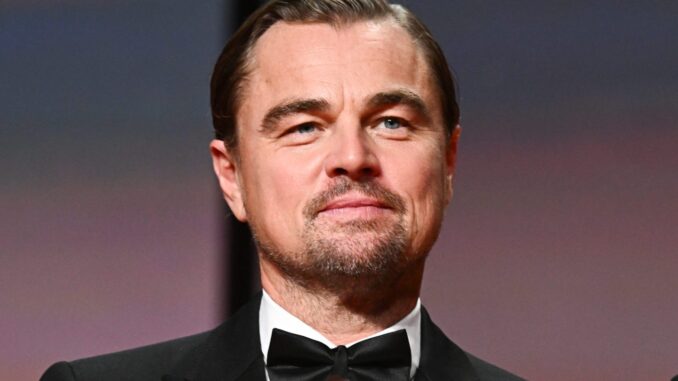
The Unchangeable Marque: Leonardo DiCaprio and the Ghost of Lenny Williams
Imagine, for a moment, a different Hollywood. A parallel universe where the iconic "Leo" never quite emerged, replaced instead by a more unassuming, perhaps more instantly palatable, "Lenny Williams." The revelation that a young Leonardo DiCaprio's first agent urged him to shed his distinctly Italian, somewhat aristocratic-sounding name for something more "American" and less "difficult" is more than just a quirky anecdote; it’s a profound illustration of Hollywood’s enduring, sometimes anachronistic, relationship with identity, marketability, and the quiet power of authenticity.
At its core, this incident illustrates Hollywood’s perennial desire for simplification and homogenization. In the cutthroat arena of nascent stardom, an agent’s job is to carve the path of least resistance to success. A name like "Leonardo DiCaprio" – with its four syllables, its Mediterranean flair, its very distinctiveness – might have been perceived, especially in the late 1980s or early 90s, as a potential hurdle. It didn’t roll off the tongue with the easy, everyman familiarity of a Tom Cruise or a Brad Pitt. It might have felt too specific, too "ethnic," for an industry often eager to project a universal, easily digestible image. The name "Lenny Williams," by contrast, is a blank slate: approachable, forgettable, and therefore, in a misguided commercial sense, moldable. It speaks to a long history in Hollywood where stars like Betty Perske became Lauren Bacall, Issur Danielovitch became Kirk Douglas, and Margarita Cansino became Rita Hayworth – transformations often driven by the belief that a more Anglo-Saxon or simply more glamorous moniker was essential for mass appeal. The industry, then, was illustrating its desire to streamline talent into a pre-packaged, universally consumable product.
Yet, DiCaprio’s refusal to adopt "Lenny Williams" powerfully illustrates the burgeoning value of authentic selfhood in an increasingly globalized and discerning entertainment landscape. His decision, perhaps driven by youthful stubbornness or an innate connection to his heritage, was a quiet act of defiance. By retaining his birth name, he clung to a piece of his identity that, against all commercial advice, would ultimately become one of his most distinctive assets. "Leonardo DiCaprio" is not just a name; it’s a marque. It commands attention. It resonates with a certain gravitas, a touch of European romanticism, that has undeniably contributed to his persona as a serious actor, an environmental advocate, and a global superstar. Had he been Lenny Williams, would he have achieved the same iconic status, or would he have been just another talented actor, lacking that inimitable, almost poetic, designation? The question itself highlights how his given name, far from being a liability, became an integral part of his brand, proving that sometimes, what is perceived as a commercial disadvantage can, with the right talent and perseverance, become a unique selling proposition.
Furthermore, this anecdote illustrates a subtle, yet significant, shift in cultural acceptance and the changing dynamics of celebrity. The advice to change his name reflects a Hollywood of a bygone era, one less attuned to diversity and more focused on an imagined monolithic audience. Today, while marketability still reigns supreme, there's arguably a greater appreciation for distinctiveness and a celebrated embrace of diverse identities. Actors like Oscar Isaac, Priyanka Chopra, and Mahershala Ali find immense success without altering their names, demonstrating a cultural evolution that allows for a broader spectrum of identities to thrive. DiCaprio's story, therefore, serves as a poignant time capsule, reminding us of the paths less taken, and how the courage to remain true to oneself can ultimately define a legacy.
In conclusion, the suggestion that Leonardo DiCaprio become Lenny Williams is more than a trivial Hollywood "what if." It’s a vivid illustration of an industry’s historical tendency to sanitize and simplify identities for mass consumption, a powerful testament to the triumph of authenticity over commercial conformity, and a subtle marker of evolving cultural acceptance. DiCaprio’s enduring success under his birth name is not just a personal victory; it’s a compelling narrative that champions the idea that true star power often lies not in erasing one's identity to fit a mold, but in embracing and elevating the very qualities that make one uniquely, undeniably oneself. The world knows and respects Leonardo DiCaprio, a name that now, ironically, sounds exactly as it should.
